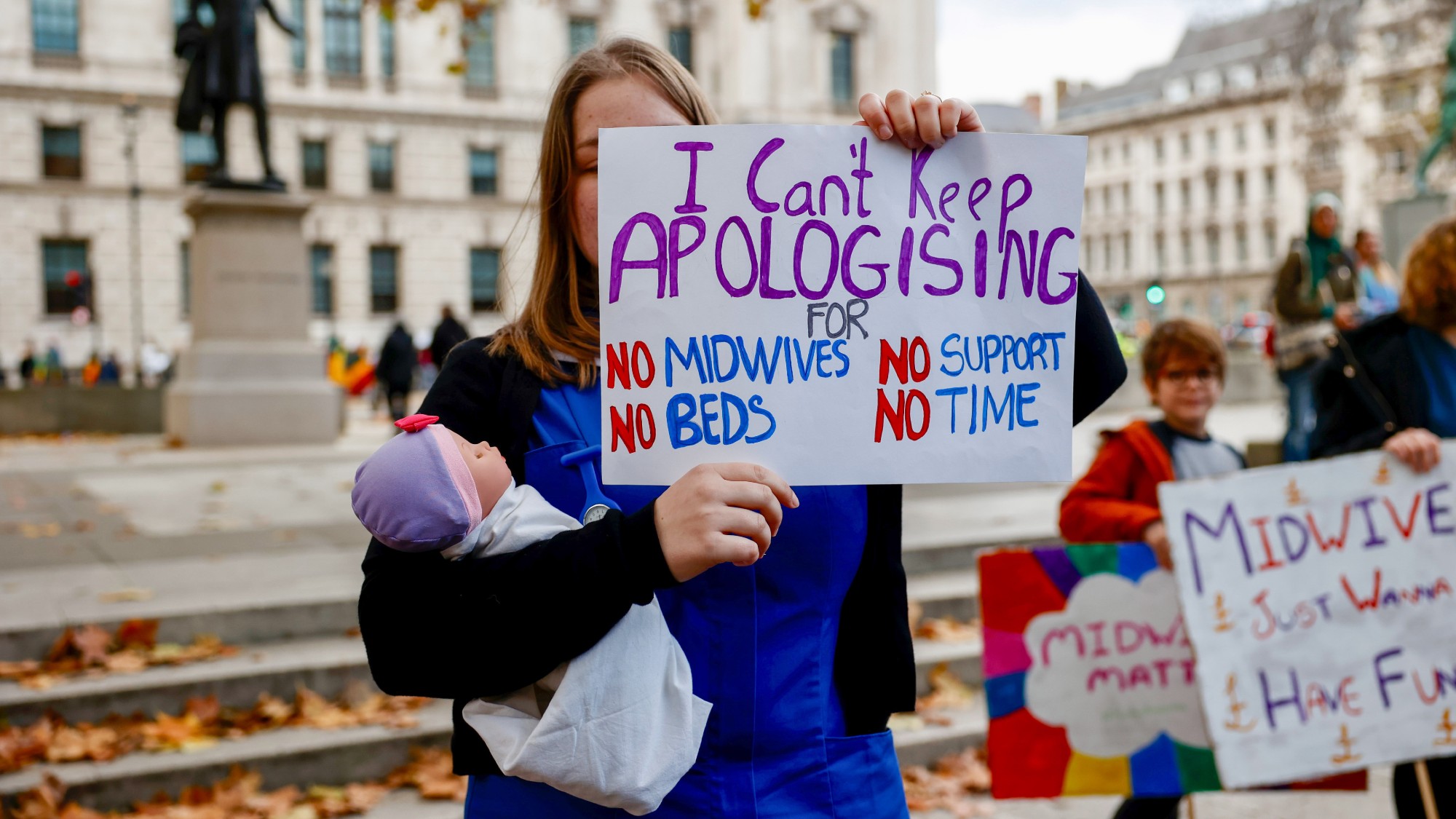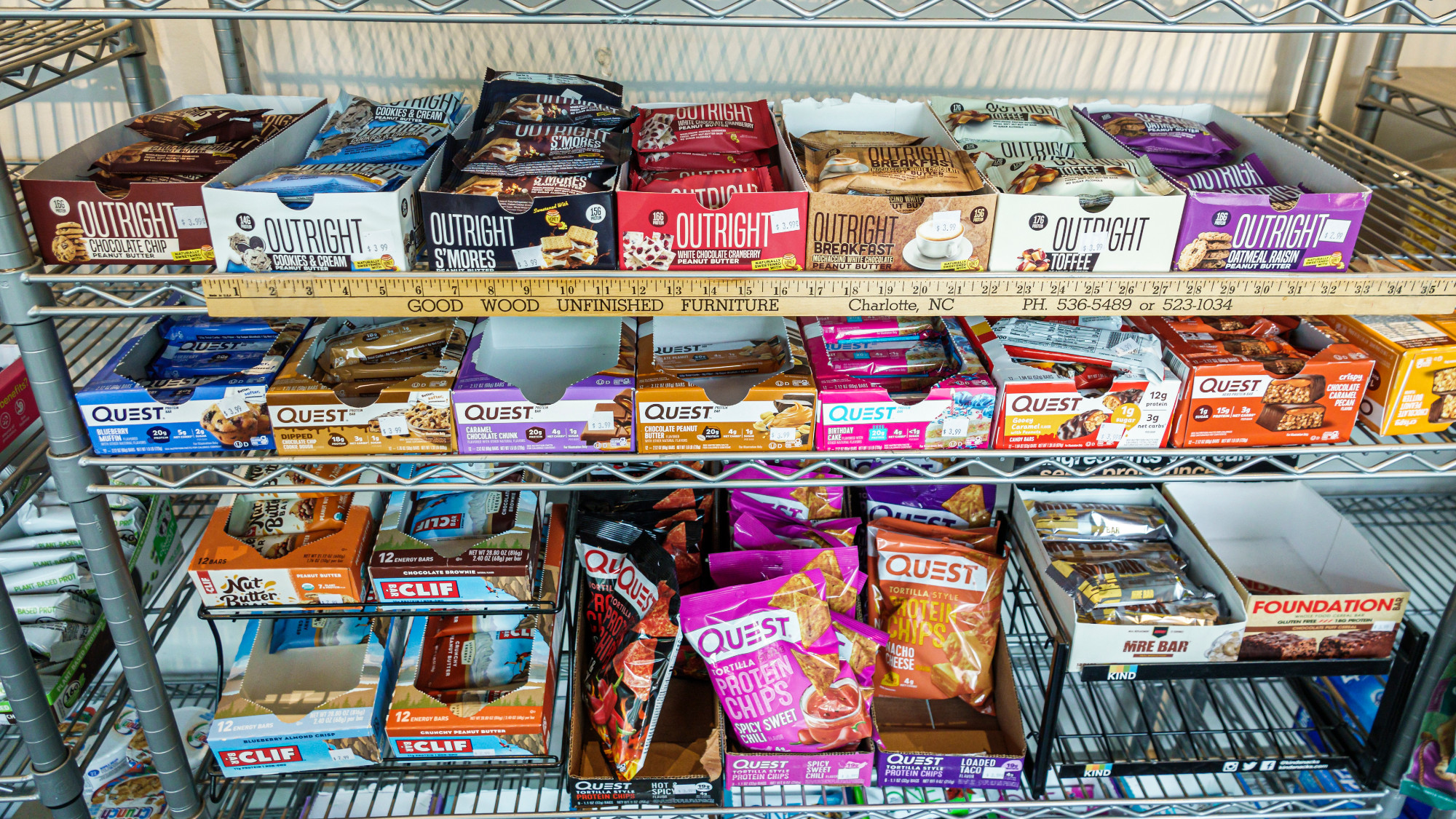Maternity wards in crisis: the 'shocking' birth trauma report
Parliamentary inquiry shines a light on 'scarcely believable scandal'

A free daily email with the biggest news stories of the day – and the best features from TheWeek.com
You are now subscribed
Your newsletter sign-up was successful
The cross-party inquiry into birth trauma was led by a campaigner with first-hand knowledge of the issue, said The Guardian. When Theo Clarke, the Tory MP for Stafford, gave birth to her first child in 2022, she suffered a third-degree tear and heavy blood loss during a 40-hour labour, followed by surgery without a general anaesthetic. "I really thought I was going to die," she told the BBC last year.
Her inquiry's report, published on Monday, shows that hers was a far from isolated case. Drawing on expert evidence and the personal testimony of 1,300 women, it "vividly conveys" the cost of failures in NHS maternity services. About 30,000 women each year – one in 20 new mothers – are diagnosed with post-traumatic disorder.
"Harrowing" accounts highlight how mistakes and failures lead to stillbirths, premature births, babies being born with cerebral palsy, and life-changing injuries to women as the result of severe tearing; how mothers are mocked, shouted at, denied proper pain relief, not kept informed, and left alone in blood-stained sheets, their desperate calls for help going unanswered.
The Week
Escape your echo chamber. Get the facts behind the news, plus analysis from multiple perspectives.

Sign up for The Week's Free Newsletters
From our morning news briefing to a weekly Good News Newsletter, get the best of The Week delivered directly to your inbox.
From our morning news briefing to a weekly Good News Newsletter, get the best of The Week delivered directly to your inbox.
A failure to listen
"All of this is shocking," said Isabel Hardman in The Spectator. Or it ought to be. Yet anyone who read the Ockenden Review of maternity services in Shrewsbury and Telford, or the review of East Kent maternity and neo-natal services, or the Morecambe Bay report, "will recognise the same pattern": the failure to listen, the lack of compassion, the "casual cruelty", the tendency to cover up mistakes, the apparent inability to learn from them.
Women and babies, the report finds, too often seem like "an inconvenience" in the delivery of maternity services. This is "a story of women treated with profound personal cruelty", said Hannah Barnes in The New Statesman. But the crisis in maternity care is also a vast economic problem: "traumatic births are costing the country billions". In 2022-23, NHS England spent £1.1bn on clinical negligence payments related to maternity. Its entire budget for maternity and neonatal services is only £3bn.
Another 'postcode lottery'
What can be done to solve this intractable problem, asked Denis Campbell in The Guardian. The MPs acknowledge that, in maternity care, overwork and understaffing are "endemic". Their first, and most important, recommendation is that there must be a new strategy to "recruit, train and retain" more midwives, obstetricians and anaesthetists. However, at present, more staff are leaving midwifery than joining it; there are actually 48 fewer NHS midwives in England than in 2019.
Even so, these failures "must end", said The Times. The report finds that good-quality care for pregnant women is "the exception rather than the rule"; deaths in the first year of life are higher than in most developed nations. To become pregnant in Britain is "to enter a postcode lottery of NHS services in which losers are at an enhanced risk of injury or death. This is a scarcely believable scandal."
A free daily email with the biggest news stories of the day – and the best features from TheWeek.com
-
 Political cartoons for February 14
Political cartoons for February 14Cartoons Saturday's political cartoons include a Valentine's grift, Hillary on the hook, and more
-
 Tourangelle-style pork with prunes recipe
Tourangelle-style pork with prunes recipeThe Week Recommends This traditional, rustic dish is a French classic
-
 The Epstein files: glimpses of a deeply disturbing world
The Epstein files: glimpses of a deeply disturbing worldIn the Spotlight Trove of released documents paint a picture of depravity and privilege in which men hold the cards, and women are powerless or peripheral
-
 Growing a brain in the lab
Growing a brain in the labFeature It's a tiny version of a developing human cerebral cortex
-
 Mixed nuts: RFK Jr.’s new nutrition guidelines receive uneven reviews
Mixed nuts: RFK Jr.’s new nutrition guidelines receive uneven reviewsTalking Points The guidelines emphasize red meat and full-fat dairy
-
 Health: Will Kennedy dismantle U.S. immunization policy?
Health: Will Kennedy dismantle U.S. immunization policy?Feature ‘America’s vaccine playbook is being rewritten by people who don’t believe in them’
-
 Obesity drugs: Will Trump’s plan lower costs?
Obesity drugs: Will Trump’s plan lower costs?Feature Even $149 a month, the advertised price for a starting dose of a still-in-development GLP-1 pill on TrumpRx, will be too big a burden for the many Americans ‘struggling to afford groceries’
-
 Ultra-processed America
Ultra-processed AmericaFeature Highly processed foods make up most of our diet. Is that so bad?
-
 The quest to defy ageing
The quest to defy ageingThe Explainer Humanity has fantasised about finding the fountain of youth for millennia. How close are we now?
-
 The battle of the weight-loss drugs
The battle of the weight-loss drugsTalking Point Can Novo Nordisk and Eli Lilly regain their former stock market glory? A lot is riding on next year's pills
-
 An insatiable hunger for protein
An insatiable hunger for proteinFeature Americans can't get enough of the macronutrient. But how much do we really need?